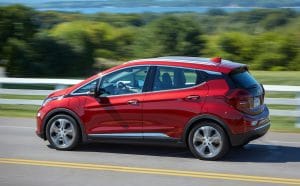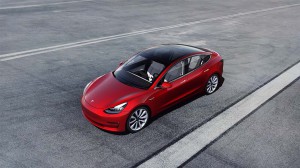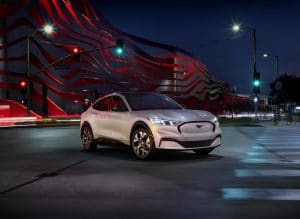Battery-electric vehicles comprise less than 5% of all new vehicles sold in the U.S., but that number is expected to rise to 50% by 2035 due in part of improving battery performance and falling prices.
Lux Research’s new report, “The Electric Vehicle Inflection Tracker: 2020 Edition,” says automakers have been doing a good job addressing three of the biggest issues consumers have with BEVs: price, charging speed and range.
“Consumers want to know, how far can this electric car go and what will it cost? Fortunately, BEVs are consistently making progress on how far they can go, with the average range now 230 miles. Since 2011, range has consistently increased, with a compound annual growth rate (CAGR) of 13.7%,” explains Chris Robinson, senior analyst at Lux Research and lead author of the report.
(GM retains faith in its electric future during pandemic.)
“Prices have also gone down, with the average vehicle’s base manufacturer’s suggested retail price (MSRP) in 2019 at $33,901, down from $42,189 in 2016. These changes are making it easier for consumers to own an electric vehicle.”
For many automakers, the goal has been to get their EVs under the $30K bar, putting it on par with most non-electric vehicles sold in the U.S. Even the best-selling electric vehicle maker in the U.S., Tesla while not having a vehicle that approaches that dollar amount, has been moving to cut costs on its least expensive vehicle, the Model 3. However, with no federal tax credits left, it’s still well over that $30K mark.
However, with more and more automakers bringing EVs to the masses, automakers are trying to find ways to make them profitable.
“Nearly all automakers now sell some form of BEV, so the focus has shifted to making them profitable,” Robinson noted. “We’ve seen a large focus on electrifying high-priced brands. Luxury brands offer vehicles at higher prices points and are able to absorb the additional costs of the battery pack.”
(GM outlines EV plan to cover every brand, product segment and price range.)
This is also partly due to the need to offset higher emissions of their larger internal combustion engines, which cause more emissions due to their vehicles being larger and more powerful. With many of the issues facing BEVs trending in the right direction, it’s time to move on to the next part of making EVs viable.
Now, Lux believes automakers should focus on their battery-supply chain, specifically battery shortages. The group rightfully notes that shortages have already caused some automakers to reduce their BEV production plans. If no changes are made, automakers are going to face significant problems meeting their own needs.
To fix this issue, automakers should secure raw materials like cobalt and lithium for their future vehicles, the report’s authors suggest. Another key strategy is to balance platform flexibility against commitment. Large original equipment manufacturers (OEMs) can afford to develop dedicated BEV platforms that save money, but smaller OEMs need to remain flexible to avoid taking a large financial hit if BEV sales are sluggish.
“Currently, BEVs are more expensive and less convenient to use than their nonelectric counterparts, but technology will continue to close this gap,” said Robinson. “We expect to see efficiency front and center as the next major focus of BEV design, with automakers either downsizing packs to increase profitability or offering more range.” As automakers continue to improve charging speed and minimize battery size, more consumers are expected to seek out electric vehicles.
(Ford reduces charging time for Mustang Mach-E by as much as 30%.)
Lux Research predicts that it will take until between 2035 and 2040 for electric vehicles to make up more than half of all vehicle sales. While adoption was tracking ahead of forecasts pre-COVID-19, Lux believes that impacts from the pandemic will only cause short-term setbacks.




Never heard of these people, although their conclusions are logical enough. Do you think they have credibility in the automotive space?